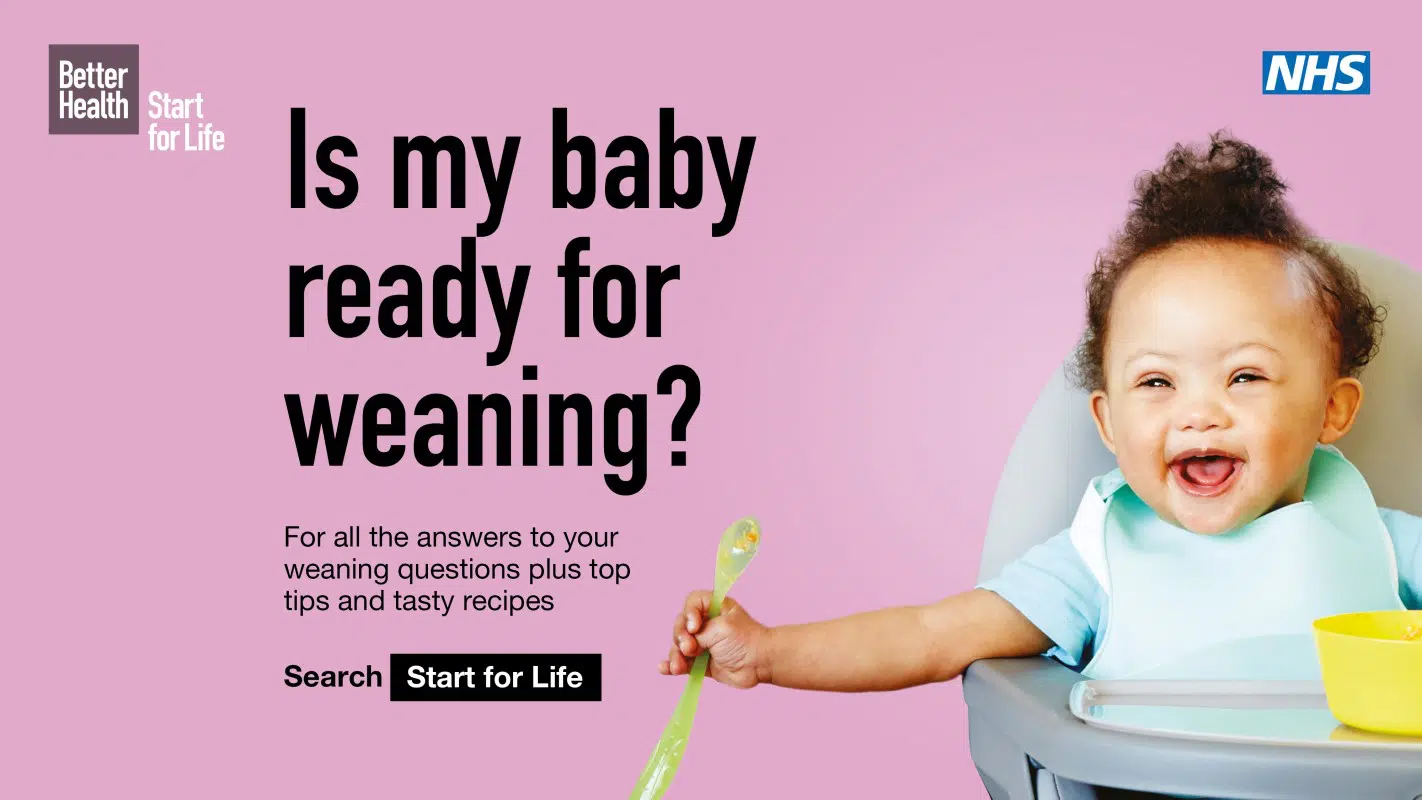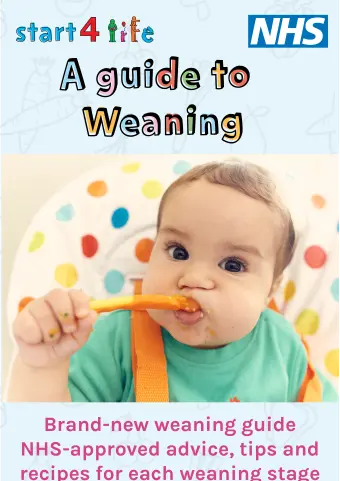Today, the Department for Health and Social Care’s Office for Health Improvement and Disparities (OHID) launches the Better Health Start for Life Introducing Solid Foods campaign. This new campaign is to support parents and carers on their weaning journey as many first-time parents find knowing when to start weaning confusing.
Weaning is when you introduce your baby to solid foods alongside breastmilk or infant formula, and it is a crucial milestone within the first 1001 days. The NHS recommends that most parents should wait until their baby is around six-months old before they start introducing solid foods. By this point, babies can cope better with solid foods and are more able to feed themselves. They are also better at moving food around their mouth, chewing and swallowing.
The campaign promotes waiting until your baby is around six months to introduce solid foods alongside breastmilk or infant formula foods. At this stage, they need solid foods as well as, and not as a replacement for, their usual breastmilk or first infant formula (which is why it’s known as complementary feeding).
Lots of parents wonder when and how to start introducing solid food, so a dedicated weaning hub has been created on the Better Health website offering support and advice during what can be a confusing time.
Advice for Parents
- What is weaning?
Weaning is introducing your baby to solid foods, starting when your baby is around 6 months old. It can be confusing knowing when and how to start introducing solid foods. See here to guide you through the journey and explain what it all means. - Is my baby ready for weaning?
Lots of parents wonder when and how to start introducing solid foods. Read about the signs that your baby is ready for weaning and what you need to get started. - What should my baby be eating?
There’s lots of information here on what to feed your baby and how much – find out about different food groups, baby-led weaning and how much milk your baby should be having.
All of the above links and more can be found on the weaning hub which is available on the Better Health Start for Life website to help parents introduce solid foods to their baby. The weaning hub is packed with NHS-endorsed advice, videos and tips, plus simple, healthy recipes, it puts everything parents need to know in one place.




